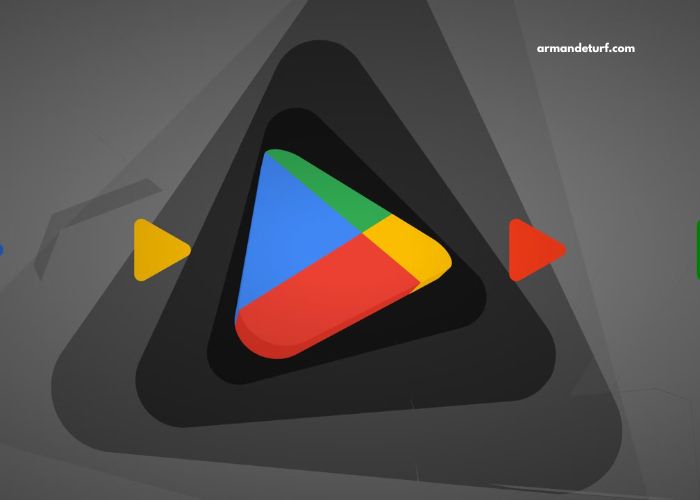Google Play Store
The digital age has transformed how we access entertainment, tools, and services, and one major player in this transformation is the Google Play Store. As the primary app marketplace for Android users, the Google Play Store has become a daily part of life for billions of people worldwide.
From productivity apps and health trackers to the latest mobile games and e-books, the Google Play Store provides a wide range of digital content. Its versatility and user-friendly interface make it a one-stop destination for all things Android.
What Is Google Play Store And Why Is It Important?
The Google Play Store is the official app store developed by Google for devices running on the Android operating system. It offers a massive library of applications, games, books, movies, and TV shows, all available for download or purchase. More than just a marketplace, the Google Play Store is a secure platform that connects developers with users in a trusted environment.
The importance of the Google Play Store lies in its global accessibility and the diversity of content it offers. With millions of apps available, the Google Play Store enables users to customize their devices according to personal needs and preferences, whether for productivity, entertainment, education, or creativity.
How Can You Download And Install Apps From Google Play Store?
To download and install applications from the Google Play Store, users simply need to open the app on their Android device, search for their desired content, and tap the install button. The process is seamless, and most apps are ready to use within seconds. Updates are automatically managed through the Google Play Store, ensuring that apps stay current and secure.
For those using desktop browsers, the Google Play Store is also accessible online. Users can log into their Google account and remotely install apps to their Android devices directly from the web version of the Google Play Store. This functionality adds convenience and ease for managing apps across multiple devices using the Google Play Store ecosystem.
What Are The Key Features Of Google Play Store?
The Google Play Store is packed with features that enhance the user experience. It categorizes apps into segments like Top Free, Top Paid, Trending, Editors’ Choice, and Family, making it easier for users to find what they need. App pages in the Google Play Store include detailed descriptions, user reviews, ratings, screenshots, and update logs, helping users make informed choices before downloading.
Parental controls, wish lists, and family sharing are other valuable features that make the Google Play Store appealing to users of all ages. Additionally, the Google Play Store supports subscriptions and in-app purchases, which are clearly marked to ensure transparency. All purchases made through the Google Play Store are secured by Google’s trusted payment system, adding an extra layer of protection for users.
How Secure Is The Google Play Store?
Security is a top priority for the Google Play Store, and the platform implements multiple layers of protection to keep users safe. Every app submitted to the Google Play Store undergoes a rigorous review process to detect malware, data misuse, and compliance with content policies. Google Play Protect, a built-in malware protection feature, continuously scans apps and devices for potential threats.
In addition to automated scanning, the Google Play Store also offers users the ability to report inappropriate content or suspicious behavior. App permissions are clearly outlined, giving users full control over what data an app can access. Regular security patches and updates help keep apps on the Google Play Store up-to-date and resilient against evolving cyber threats.
Can You Use Google Play Store On Non-Android Devices?
While the Google Play Store is designed primarily for Android devices, there are ways to access its features on non-Android platforms. For example, Chromebooks that support Android apps come with the Google Play Store pre-installed. Some emulators like BlueStacks also allow users to run Android apps from the Google Play Store on Windows or Mac computers.
However, it’s important to note that installing the Google Play Store on unsupported devices can pose security risks. Therefore, it’s recommended to use the Google Play Store only through official channels. Users looking for cross-platform compatibility often rely on web-based services or use Google Play Books and Movies, which are accessible through browsers, providing limited Google Play Store access without an Android device.
How Does Google Play Store Support Developers?
The Google Play Store plays a vital role in supporting app developers by offering tools and resources to reach a global audience. Through the Google Play Console, developers can publish their apps, monitor performance, respond to reviews, and access monetization options. The Google Play Store also offers beta testing, staged rollouts, and analytics, enabling developers to fine-tune their products before reaching a wider market.
In return, the Google Play Store earns a commission from in-app purchases and app sales, creating a sustainable ecosystem for app growth. Developers benefit from the trust and scale of the Google Play Store, knowing their apps are being distributed through a secure and reliable platform with billions of active users worldwide.
Conclusion
The Google Play Store is far more than just an app marketplace—it’s a comprehensive digital hub for everything Android. From downloading the latest apps to managing security updates and exploring new content, the Google Play Store is an essential part of the Android experience.
It connects users with developers, supports safe digital transactions, and delivers a curated selection of content across categories. As technology continues to advance, the Google Play Store will remain at the forefront of mobile innovation, empowering users and developers alike to explore endless possibilities.



